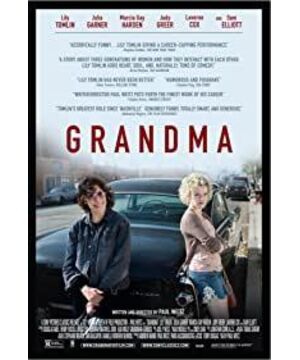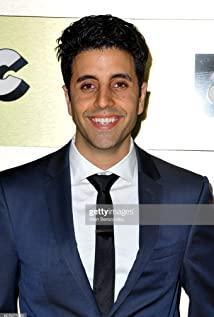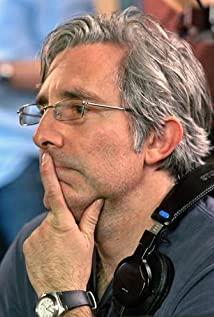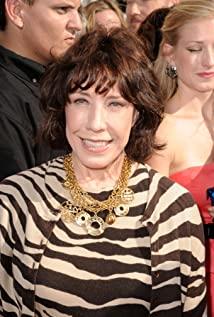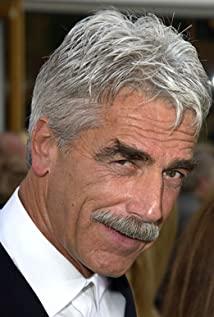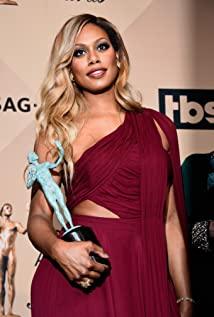I'm not talented. I watched the 79-minute film at least three times before I could see why. There were no subtitles when I watched it for the first time. Although I missed a lot of details, I was already laughing and bending over. Lily's comedy performance is so deep-rooted that even watching the pantomime will probably make you want to laugh. The second time I downloaded an English subtitle on the Internet, I was frightened at the beginning. It turned out that I couldn't understand it the first time, not because of the speed of speech or cultural differences, but because of the GRE vocabulary! It is estimated that apart from the American TV series "The Big Bang Theory", which often throws out science-related GRE words, no other comedy dares to do this. So, this is no ordinary comedy popular movie. The second time, because of the lines, I figured out many details, and then I realized that this is a pure feminist film, so I brushed it for the third time.
The film presents a day centered on Grandma Elle and the Granddaughter Sage in over an hour, and shows Elle's life in pieces (I don't want to translate the word Grandma as "grandma" because I think "grandma" The title itself goes against the concept of feminism. The word "outside" is a kind of marginalization of the female role, so I think it is more appropriate to use the word Grandma). This method of depicting a long time in a short period of time reminds me of the movie "45 Years", which also uses subtitles to divide the film into several parts. The subtitles in "45 Years" are just "Monday", "Tuesday", "Wednesday"... reminding the time like this is as bland as writing a diary. But the subtitles used in "Grandma" are poetic and have a lot of undertones while moving the story forward. For example, although the first title is "endings", it actually symbolizes "starting with the end": Although Elle and Olivia ended a relationship, they got to know each other better in the end, which makes the final unpredictable reconciliation plausible . Although Sage is about to end her pregnancy, she is also beginning to forge a deeper bond with her mother and Grandma. Violet has worked as a volunteer in the women's clinic that can provide free abortions, but it has a long day to come. At the same time, it makes people feel that everything related to Violet is slowly disappearing in Elle's life, including the car that Violet left in the end, and it seems that it is time for Elle to start a new life. (The car is actually Lily Tomlin's own, and since indie films generally don't have much money, use whatever resources are available.)
The second subsection "ink" takes the tattoo parlor as the scene and begins to reveal the imprint of Elle's previous life. This section has to mention black characters and transgender characters. The first time I saw the tattoo artist, I thought she was transgender, and then I checked Wikipedia and found out that she was, and she was famous. The actor, Laverne Cox, was the first transgender person to be nominated for a Primetime Emmy and the first transgender person to have a life-size portrait at Madame Tussauds. Black, gay, transgender people are kind, capable, and affectionate in the movie: for example, Violet is black (there is a hint in the photo that Elle saw at the beginning of the movie when he recalled the past, and the music in the car that Violet left behind is also black. style); the nurse who ended up in charge of Sage in the women's clinic was black; the only one who lent money to Elle without complaint was this transgender tattooist. In contrast, all the male characters in the film are rigid, mediocre, and irresponsible: including the "little three" who let Sage get pregnant but is unwilling to take responsibility, and even refuses to pay half of the abortion fee. ; the handsome male customers in the coffee shop who seem timid; the men in the lobby of Sage's mom's company who made all kinds of mistakes and waited for a woman to help clean up the mess; and Elle's ex-husband Karl seemed like a Male animals have had 11 wives. It can't be said that these renditions are deliberately belittling men, only that this is a man seen from a purely female perspective (it's hard to imagine the director and writer being a man).
The third subsection, "apes," is the climax of the feminist frenzy. Some background knowledge is required to understand, though, as several classics are mentioned, including feminist author Simone de Beauvoir's autobiography The Prime of Life (which focuses on her and the famous French existentialist philosopher Sa special open relationship), "The Feminine Mystique" by Betty Friedan and "The Female Eunuch" - The Female Eunuch Germaine Greer), and postmodern poetess Eileen Myles, author of The New Fuck You: Adventures in Lesbian Reading. (Here I want to explain the first and second wave of feminist movements. The first wave occurred in the late 19th and early 20th centuries, and it mainly fought for women's suffrage. There is a recent film called "Suffragettes" about This is the stage. The second wave of the movement started in the 1960s, and it mainly fought for equality and freedom in a broader sense. I remember that there was a time in the American TV series Friends that Rachel did not wear Bra. This actually originated from the first feminist movement. The concept of the Second Wave is that women are completely liberated and unfettered.) It is also ironic that Elle compares human society with the community of gorillas, returning to the fundamental nature of sex as a biological attribute. Although this stanza is the peak of Elle's emotional conflict, it's not the culmination of the tension of the whole film, because the fourth stanza really leads the story to the brink of collapse. "I always liked women. I just didn't like myself." I think this is the most disturbing line in the whole show.
Running and borrowing money for the granddaughter, willing to go into debt for the partner, giving up art for the daughter, reluctant to give up the love for the lover, there are also confusions and escapes. When the bits and pieces of Elle shown in this movie come together, it really makes me I think it is a man and a woman, and loving a man or a woman is just a label placed on us by the outside world. Real life always requires us to ignore these labels and face those soft and strong souls. Fortunately, Sage's mother appeared in time in the fifth quarter, and played the roles of "Doubi" and "asshole" without complaint, bringing the story from a dead end to the exit. Although this section is an indispensable part of the whole story, I think it is also the biggest failure of the whole movie! Because of the sensitive and controversial topic of "abortion" in Christian society, this section has been played up too hard. It's bound to put most critics off, and I guess that's why the movie doesn't get a lot of award nominations. Assuming that the movie chooses to have Sage finally decide to have the baby after a day of experience, and the family breaks down the barriers to face the future together, this ending might be safer for the movie, but! ! This again goes against the original purpose of feminism: women have the right to choose their own lives, which means that abortion can not be criticized by society (although still controversial, but it is undeniably part of feminism.) I think Neither the writers nor the actors want to compromise for popular taste or critics.
The epilogue "dragonfly" returns to Grandma's love story line.
You bite my wings, Attack me midflight,
Evolution's knife Pressed to my throat.
Although a sideline, I feel that this love thread is the essence of the whole story. These two poems uttered by Olivia's mother affectionately just set off Elle and Olivia's relationship status. The wings of a dragonfly are as nimble and sensitive as a poet's nerves. When captured by love, they are willing to break their wings. . .
All in all, this is the best female-themed movie I've ever seen. It has a compact and balanced structure, a slow and orderly rhythm, a story that begins and turns, and the lines are humorous and wonderful. It's like making a movie in the spirit of a stage play. I think if it weren't for these, Lily Tomlin, who is so principled and individual, would not be willing to take the photo.
View more about Grandma reviews


